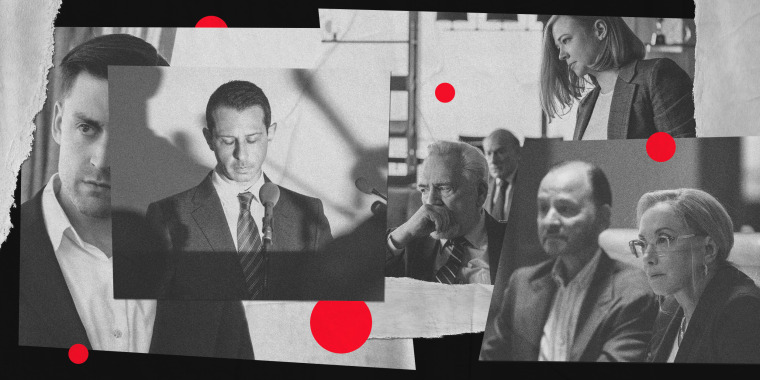I’m a fan of HBO's "Succession." A critical viewer but a fan nonetheless. Definitely an avid watcher.
Sometimes I watch in awe of its creators for having developed a show in which nonwhite characters are rarely seen and almost never heard — and yet their absence hasn't drawn much ire at a time when onscreen representation is a major topic of discussion.
It’s as if everyone understands the show's central characters aren’t the kind of people who’d pal around with people of color. After all, the fictional Roy family seems to be an amalgamation of the Murdochs (because of their riches and political heft) and the Trumps (because of their dysfunction).
The discrimination in "Succession" makes sense, I tell myself.
One of the most popular television shows is basically the TV equivalent of a Google calendar.
But what I've found most noteworthy about "Succession" since the beginning is how it takes seemingly mundane office bureaucracy and turns it into full-fledged drama. And I’ve always been intrigued by how this sets "Succession" apart from other American television shows.
As I frequently tell my friends, "Succession" is a show about paperwork. At the heart are various legal documents that signify stakes in various assets — television networks, cruise lines and lavish estates — and each character’s trepidation, anger or glee over what these documents mean for them.
With much of the show focused on media mogul Logan Roy (played by Brian Cox) and his rich kids, I often categorize each episode in one of three ways:
“Dad is signing the paperwork!”
“Dad is thinking about signing the paperwork!”
OR
“Dad won’t sign the paperwork!”
It’s a clerical drama. Essentially, a show that depicts a bunch of business meetings tethered together. I often joke that this is what makes "Succession" the most entertaining boring show on TV. I find it ironic that during the pandemic and post-pandemic era, when many people have discouraged grind culture and workplace obsessions, one of the most popular television shows is basically the TV equivalent of a Google calendar. Even the romance in the show — if you want to call it that — centers almost entirely on transactional relationships between characters who use these relationships to make or keep money.
When the office is portrayed as a battlefield, bureaucratic actions such as a phone call, fax or keystroke can feel like acts of war.
To me, all of this is particularly noteworthy because this is a show that, unlike many other American dramas, lacks physical conflict. There’s rarely any physical fighting in “Succession. There are no shootings (so far), and to the best of my memory, there have only been a few deaths — all incidental.
Some remarks from creator and showrunner Jesse Armstrong made in the after-show commentary from the April 30 episode help drive home the point I’m making.
He described the impulsive decision by character Roman Roy (played by Kieran Culkin) to fire staff at the media conglomerate he now runs as “violent.”
“There’s different ways of looking at how violent he [Roman] is with his firings," Armstrong said. "Is that a disaster or is it a great strength?”

I’ve always seen office politicking as the fundamental conflict in “Succession” and viewed the show’s adherence to this over time as part of its uniqueness.
But Armstrong’s comments provide more evidence to support this idea.
When the office is portrayed as a battlefield, bureaucratic actions such as a phone call, fax or keystroke can feel like acts of war.
And what the show lacks in physical conflict, it makes up for in ample measure with maniacal business machinations, be they passive-aggressive or overt. In “Succession,” the color of conflict isn’t blood red. For the most part, it’s black and white.
